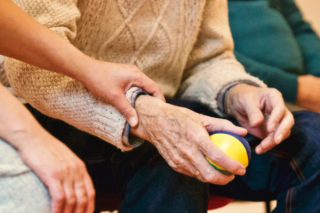question
what specialists should be included in my care team for managing rheumatoid arthritis?
Managing rheumatoid arthritis (RA) effectively often requires a collaborative approach involving various healthcare professionals. In my sources, several specialists and allied health professionals are highlighted as essential members of your care team. Here’s a breakdown of who they are and how they can assist you:
1. General Practitioner (GP)
- Role: Your GP is typically your first point of contact for any health concerns, including RA. They can help coordinate your overall healthcare and refer you to specialists as needed.
- Responsibilities:
- Make a diagnosis and check for any related health issues.
- Discuss treatment options and preferences.
- Provide referrals to specialists, including rheumatologists.
2. Rheumatologist
- Role: A rheumatologist is a specialist in diagnosing and treating joint, muscle, and bone disorders, including RA.
- Responsibilities:
- Tailor your treatment plan based on your symptoms and the severity of your condition.
- Monitor your progress and adjust treatments as necessary.
3. Orthopaedic Surgeon
- Role: An orthopaedic surgeon focuses on surgical treatments for bone, muscle, and joint disorders.
- Responsibilities:
- Discuss the need for surgery if conservative treatments are insufficient.
- Provide options for managing joint issues that may arise from RA.
4. Allied Health Professionals
These professionals can provide additional support in managing your condition:
-
Dietitians:
- Offer advice on healthy eating and weight management, which can be crucial for overall health and managing RA.
-
Exercise Physiologists:
- Provide guidance on appropriate exercises to maintain joint flexibility and muscle strength.
-
Occupational Therapists (OT):
- Help you modify daily activities to reduce strain on your joints and improve your quality of life.
- Teach joint protection techniques and energy conservation strategies.
-
Physiotherapists:
- Advise on exercises and treatments to relieve pain and maintain joint function.
-
Podiatrists:
- Specialise in foot-related issues and can assist with footwear and orthotics to support your joints.
-
Pharmacists:
- Help you understand your medications and ensure you use them safely and effectively.
-
Psychologists:
- Provide support for coping with the emotional aspects of living with RA, including therapies like cognitive behavioural therapy (CBT).
-
Rheumatology Nurses:
- Offer education and support regarding your diagnosis and ongoing management of RA.
5. Mental Health Professionals
Given the emotional toll that chronic conditions like RA can take, including mental health professionals in your care team is vital:
-
Psychiatrists:
- Can assess and treat mental health issues, prescribe medications, and provide therapy.
-
Mental Health Nurses:
- Work alongside psychiatrists and GPs to monitor your mental health and provide support.
Conclusion
Assembling a comprehensive healthcare team is crucial for effectively managing rheumatoid arthritis. Each member plays a unique role in addressing different aspects of your health, from physical symptoms to emotional well-being.
It’s important to communicate openly with your GP about your needs and preferences, as they can help coordinate your care and ensure you receive the support necessary for managing your condition. If you have further questions or need clarification on specific roles, I encourage you to consult your healthcare professional for tailored advice.
This information is not a substitute for professional medical advice, diagnosis or treatment. Always consult a registered healthcare professional about matters that affect your health. Clara uses artificial intelligence to generate general information for personal educational purposes only, not intended to be a management plan and it may contain errors, inaccuracies or may oversimplify concepts.
Sources












